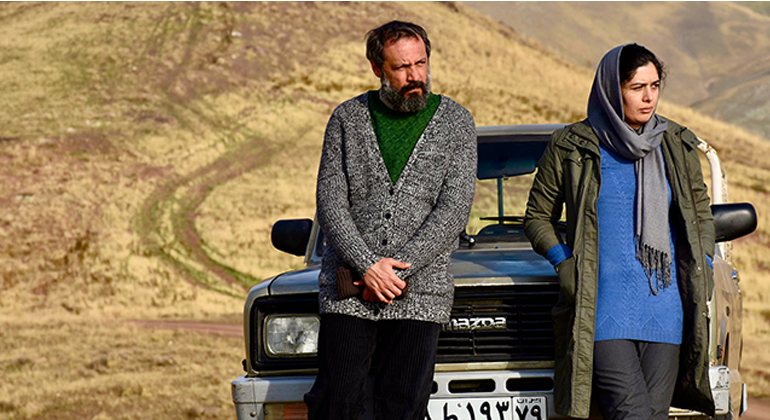Now Showing at the Detroit Film Theatre: “There Is No Evil” and “Edo Avant Garde”
The anthology film “There Is No Evil” had to be snuck out of Iran to be seen. “Edo Avant Garde” is a documentary that reveals how Japanese artists centuries ago influenced the art world at large. They are now screening virtually at the Detroit Film Theatre.

CultureShift on 101.9 WDET-FM gives you a front-row seat to the latest films playing at the Detroit Film Theatre (DFT).

Since 1974, DFT director Elliot Wilhelm has curated the films shown in this historic theater inside the Detroit Institute of Arts. During the COVID-19 pandemic, the DFT has continued to bring contemporary and classic world cinema from around the globe to patrons virtually via their website.
Now Showing: “There Is No Evil”
Shot in secret and smuggled out of Iran, There is No Evil is an anthology film comprising four moral tales about individuals being faced with a simple yet unthinkable choice – to follow an authoritarian regime’s orders to enforce the death penalty, or to resist and risk everything. Whatever they decide, it will directly or indirectly affect their lives, their relationships, and their consciences.
Director Mohammad Rasoulof, now sentenced to prison and banned from making films for two years, wrote, “As responsible citizens, do we have a choice when enforcing the inhumane orders of despots? As human beings, to what extent are we to be held responsible for carrying out those orders? Where does the duality of love and moral responsibility leave us?”
Described by IndieWire’s Eric Kohn as “a brilliant anthology and a riveting thriller,” There is No Evil is an urgent, incisive look at the moral strength and inner humanity of its protagonists. Winner, Golden Bear (Best Film), 2020 Berlin Film Festival. In Farsi with English subtitles. (150 minutes)
Now Showing: “Edo Avant Garde”
Edo Avant Garde (2019) reveals how Japanese artists during the Edo period (1615–1868) innovated approaches to painting that many in the west associate with “modern,” twentieth-century art. Through interviews with scholars, collectors, dealers, and priests in both Japan and the United States, the film explores concepts such as abstraction, minimalism, surrealism, and subjectivity in Edo-period paintings.
With cinematography by Kasamatsu Norimichi and original music by Satoshi Takeishi and Shoko Nagai, the film also offers immersive moments that invite viewers to experience these paintings for themselves. Visiting museums, private homes, tea houses, and temples, we see dynamic folding screens, hanging scrolls, and handscrolls in a variety of settings that encourage us to look differently and consider them from new perspectives.
Detroit Film Theatre Director Elliot Wilhelm contributed to this web story.
Trusted, accurate, up-to-date
WDET is here to keep you informed on essential information, news and resources related to COVID-19.
This is a stressful, insecure time for many. So it’s more important than ever for you, our listeners and readers, who are able to donate to keep supporting WDET’s mission. Please make a gift today.
